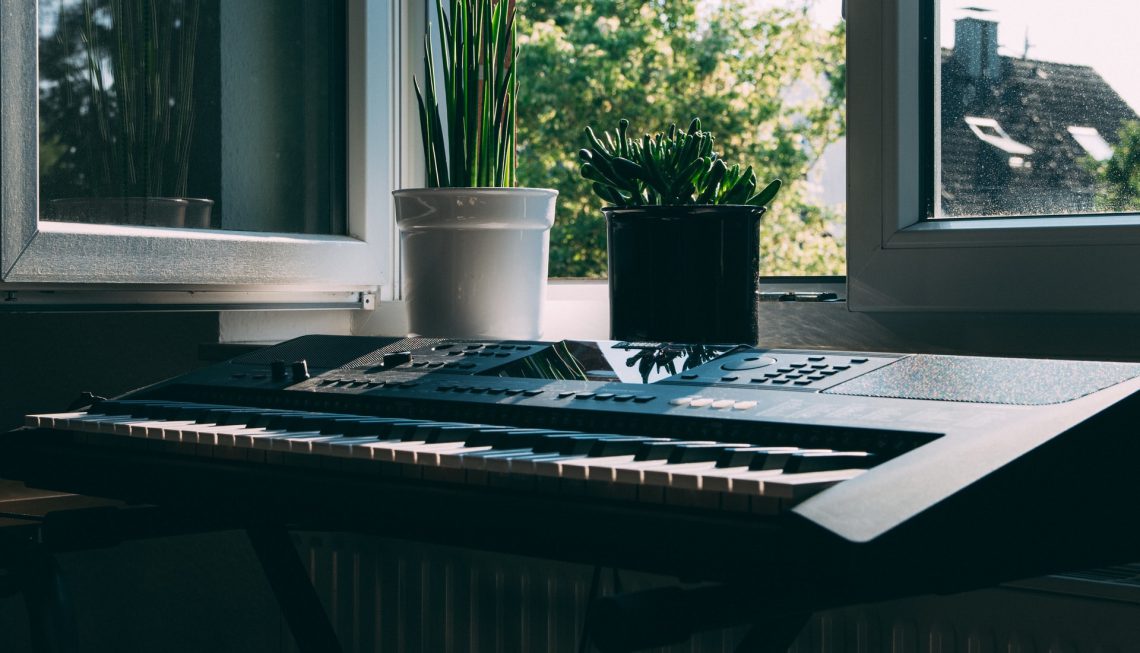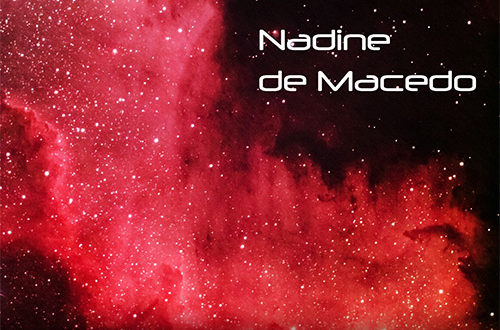
Are songwriters influenced by the music they hear?
Lots of musicians and songwriters are being asked which kind of music they listen to. But sometimes, the taste does not match the music they perform. How can songwriters write something unique though they are influenced by other songwriters? A discussion on songwriting and influences.
Some days ago, I uploaded a playlist onto my Instagram account. My followers were a bit puzzled, because the music I posted has been harder than the music I write. Of course, songwriter are influenced by the music they listen to, but there are different ways how to cope with it.
How songs influence songwriters
When I talk to my non-musician friends, I often have the impression that musicians process music differently. You can listen to the same song with different ears. Pick a song and listen to it four times with a different focus: The emotions, the lyrics, the harmonic structure or the arrangement. You will notice that not every song is consistent and predictable in every level. In my humble opinion, songs with contradictions are appealing, but plenty of people find it disturbing. Just imagine a love letter shouted by a metal core singer. I’m sure you’ll interpret this song differently than a pop ballad using exactly the same words. As songwriter and composer, it is interesting to play around with the different levels of music.
Once you figured out how to listen to songs with a different focus, you will open yourself up to different genres and topics. I love the combination of melancholic chords, heavy riffs and mid-tempo beats. It does not matter, if it’s epic trance, symphonic metal, pop or classical music – I can find these type of songs everywhere. If you love arrangements with multiple instruments playing different melodies at the same time, you can find it in progressive rock, jazz, trailer music and drum and bass. If you’re into blues schemes, you can listen to boogie, rock’n’roll, blues rock and old school r’n’b. I am sure you will find something you love in (nearly) every genre and become a songwriter with multiple influences.
Would you have ever guessed that my main inspiration for my epic trance songs came from symphonic metal?
Physical and technical limitations
As musician, you are not able to perform or compose arbitrary songs and genre. I am pretty sure that I will never be able to arrange an orchestra like Hans Zimmer, sing like Matt Bellamy or speak with the guitar like Devin Townsend. We all may have idols that are far beyond our capabilities. You could dedicate your lifetime to reach that level – Or you can enjoy listening to their music. Independently of your choice, they will still influence you as songwriter!
In handmade music, most people struggle with physical limitations. Let’s take a guitarist who dreams of playing super heavy riffs. Investing in good hardware and dedicating years of playing does not mean, that you can nail the exact sound of your favourite band. It will be hard for you to play thrash metal if you’re a soft picker with slow fingers. Is it worth spending hundreds of hours if your bandmate tells you, that you play solos on the acoustic guitar like no other?
Another natural boundary can be your voice. You can take hours of vocal coaching to extend your range or learn how to modulate to a slightly harder or softer sound, but your tenor voice will never have the warmth of a baritone in the low registers. Why should you compose or perform songs in a range or style that is not made for you? It’s okay for karaoke, but you’ll destroy your voice sooner or later.
Sometimes, things that sound super easy can turn into huge impediments. When dubstep and heavier styles of house emerged, I wanted to produce this music so badly. Turning the knobs of various synthesizers, I figured out that I am not able to create a super hard wobble bass. I watched a dozillion tutorials, but it never sounded cool. Did I do something wrong? Do I really need a top-notch synthesizer? No, I didn’t, I just lacked of knowledge on sound design and patience to learn it. You can get a decent sound of every synthesizer if you know how it works!
The urge to write something new
Everybody knows that nearly every melody and chord progression already existed. Still, most songwriter and composers did not give up on writing something new. Or at least something that is not as common that it’s played on heavy rotation on the radio.
It’s quite common that newcomer bands sound a lot like their idols until they develop their own sound. You can also build an audience by sounding like a certain band, purposefully. Don’t make it too obvious, cause the signature sound can fall under copyright under certain circumstances.
In search of new sounds, new progressions or new structures, it may happen that people won’t spot your songwriter influences any more. This is your signature sound, something only YOU can develop, because nobody else shares exactly the same biography and taste combined with your performance and skill. So why should you bother sounding like everybody else, if you already found your sound?
When I started with composition and music production, my music sounded a lot like the music I listened to. During the years, my taste of music and art became super eclectic. As I realized, that I’ve been copying sounds and structures of my favourite musicians without noticing, I switched the genre and started doing something on my own. You can still hear the influences on my songwriting.
The inner voice of a songwriter
A fascinating topic, that kept me going for years, is the question, if every songwriter has an inner voice. What is the music you’d write if you had all means and quit listening to music for a couple of years? I am pretty sure that every songwriter has some favourite topics, chord progressions, scale, effects or mood that influenced him or her.
I figured out that my “inner voice” is melancholic pop rock music. Though listening to harder music, the natural combination of triads on piano, guitar arpeggios, power chords, strings, clean vocals, a heavy sounding drum set and a super catchy chorus result in pop rock. I used to write plenty of songs in b minor or e dorian, that are quite easy to play and sound melancholic. I could write a decent pop rock song in a couple of hours, but it’s boring to do that too often. So I challenge myself by writing hard and soft music, or by using instruments and techniques I can’t perform yet.
Even if I don’t do pop rock music, you will find all the above-mentioned traits in my songs. I do not have a signature sound, because I write too many genres and collab a lot. Every song is a mix of the sound and techniques of all artists. But I have preferences on mixing and mastering, which is also influenced by the music I listen to.
Are songwriters influenced by the music they listen to?
Yes and no. In my humble opinion, these are the main reasons why songwriters write a certain type of songs:
- Songwriters are emotionally and technical influenced by their idols
Songwriters listen to songs on a different level, so they can pick a certain technique from one band, maybe the arrangement from another band and adapt it to their style. - Physical and technical limitations exclude certain genres or techniques
You simply can’t perform or produce something that is beyond your set of skills, technical or physical limitations. - Most songwriters have the urge to write something new
It’s not fun to write something that’s played in the radio all day. Unless you’re a ghostwriter and make money by copying the style of an artist, which is another kind of artistry. - Songwriting is a personal emotional experience
A songwriter’s aim is to write music of a personal need or feeling. This is all yours! - The inner voice of a songwriter is their sweet spot
Every songwriter has a certain set of techniques, topics and arrangements that are super easy and comfy to apply.





2 Comments
Joseph Rubiano
In my opinion, every artist has a unique character and print, as much as he or she tries to “copy” someone’s style the personal touch will stay there.
As a listener, I like to listen to the different recommendations that I get.
As a producer, I got the influences from my favourite artists. If I like the bass, or the drum process of a certain tune, then I try to get my sound close to that. Music is a recycle process, not only for chord progressions and melodies, but also for drums, basses, arrangements and so on.
What really makes the music sounds “different” is the personal print the artists put in their productions, the final result for the normal customer is something unique and perfect.
Limitations are basically the main issues to get up to the next level, complex songwriting, advanced sound design depend on the amount of skills and knowledge we have.
Such an interesting blog’s post!
Cheers!
Nadine
I’m happy to hear you had a good read!
I am not sure if every artist has a unique character and print. I heard plenty of people on YouTube who are technically good singers and can copy the style of internationally known artists. But if you listen to their own songs, it feels like they sing with the voice of their idols on a backing fitting to their idols. Listening to this makes me cry, because I wish I had 20% of their technical skill!
But I agree to your limitations. My songwriting uses plenty of techniques and instruments I can’t perform. But I won’t limit my ideas to my performance skills, because my gap is about 10 years of practise. It feels like wasted potential…